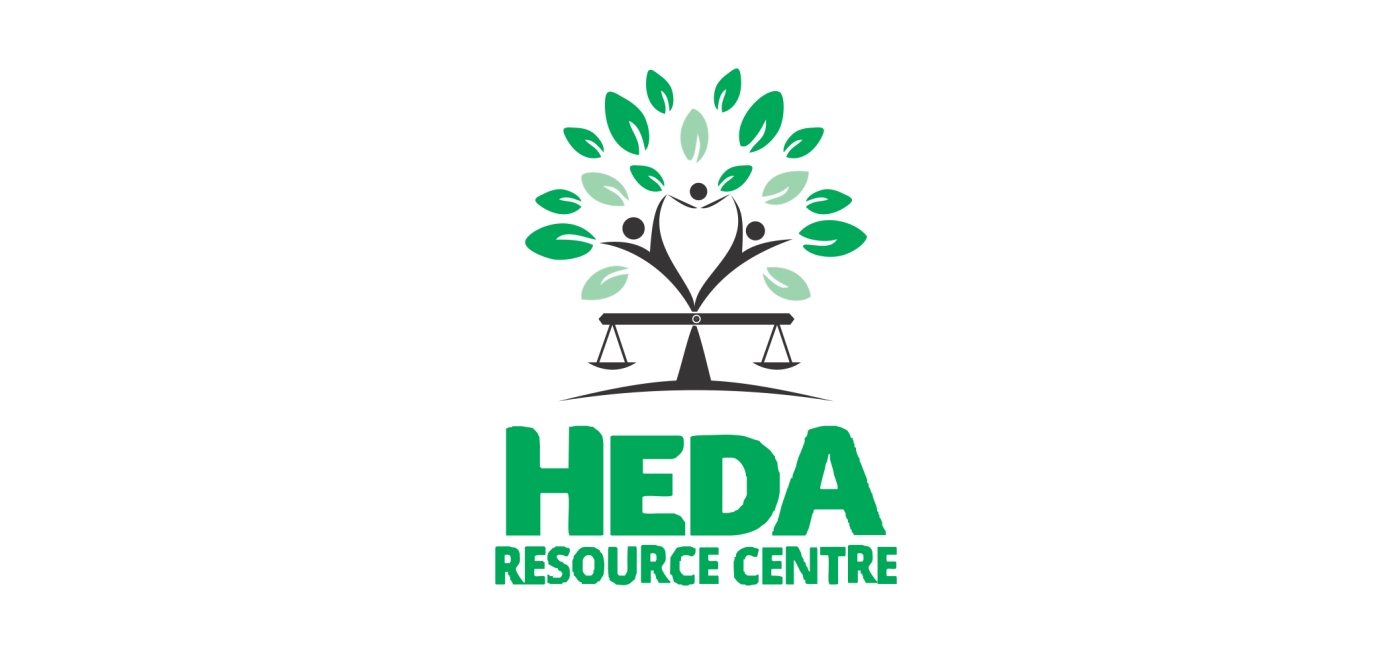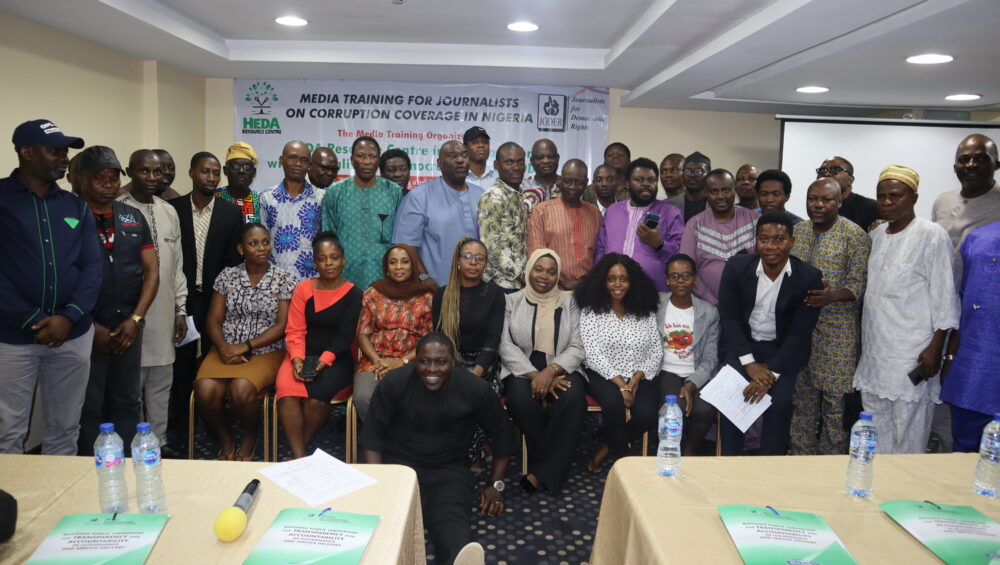The Human and Environmental Development Agenda (HEDA Resource Centre), the Journalist for Democratic Rights (JODER), and the Independent Corrupt Practices and Other Related Offenses Commission (ICPC), have raised alarms regarding the pervasive corruption in various sectors of Nigeria, urged journalists to up the pivotal role they play in exposing corrupt individuals fearlessly and without bias.
During a media training session organized by HEDA in partnership with JODER and supported by the MacArthur Foundation, stakeholders convened under the theme “Building Public Ownership for Transparency and Accountability in Governance and Service Delivery.” focusing on their pivotal role in exposing corrupt individuals fearlessly and without bias.
Sulaimon Arigbabu, Executive Secretary of HEDA, emphasized the worsening state of corruption in the country and stressed the necessity of collaborative efforts among all stakeholders to rectify the situation. Highlighting the global socioeconomic challenges, Arigbabu underscored the unique severity of Nigeria’s predicament due to the hindrance caused by corruption, hindering progress despite global efforts to ease challenges.
Adewale Adeoye, Executive Director of JODER, called for a change in the narrative, urging media practitioners to conduct thorough, fact-based investigations and expose corruption. He argued that a corrupt-free society is achievable if the media remains vigilant, putting political leaders under scrutiny and demanding transparency.
Hadiza Rimi, representing the ICPC Chairman, Musa Aliyu, emphasized the vital role of the media in the fight against corruption. Aliyu stressed the importance of ethical reporting and the need for journalists, online media, and bloggers to uphold the highest standards of professionalism in covering corruption stories. The ICPC chairman urged the media to be committed to truth, accuracy, and fairness, emphasizing that responsible journalism contributes to fostering accountability and change.
The training also addressed the need for the Nigerian government to identify collaborators in the $11 billion arbitration award sought by P&ID, emphasizing that the court ruling in Nigeria’s favor should not conclude the case. Facilitators at the training, including Sam Olukoya of the BBC, expressed concerns about unresolved corruption cases involving multinational companies operating in Nigeria and urged accountability for those involved.
Kabir Alabi Garba, the Weekend Editor of Guardian Newspaper, highlighted the lack of follow-up by the media on published corruption cases, attributing it to the impunity enjoyed by the guilty parties. He pointed to the Halliburton scandal as an example, lamenting the lack of punitive measures against culprits in Nigeria compared to their counterparts abroad. According to him, this contributes to the growing corruption in the country, as justice is not consistently served to those found guilty.






